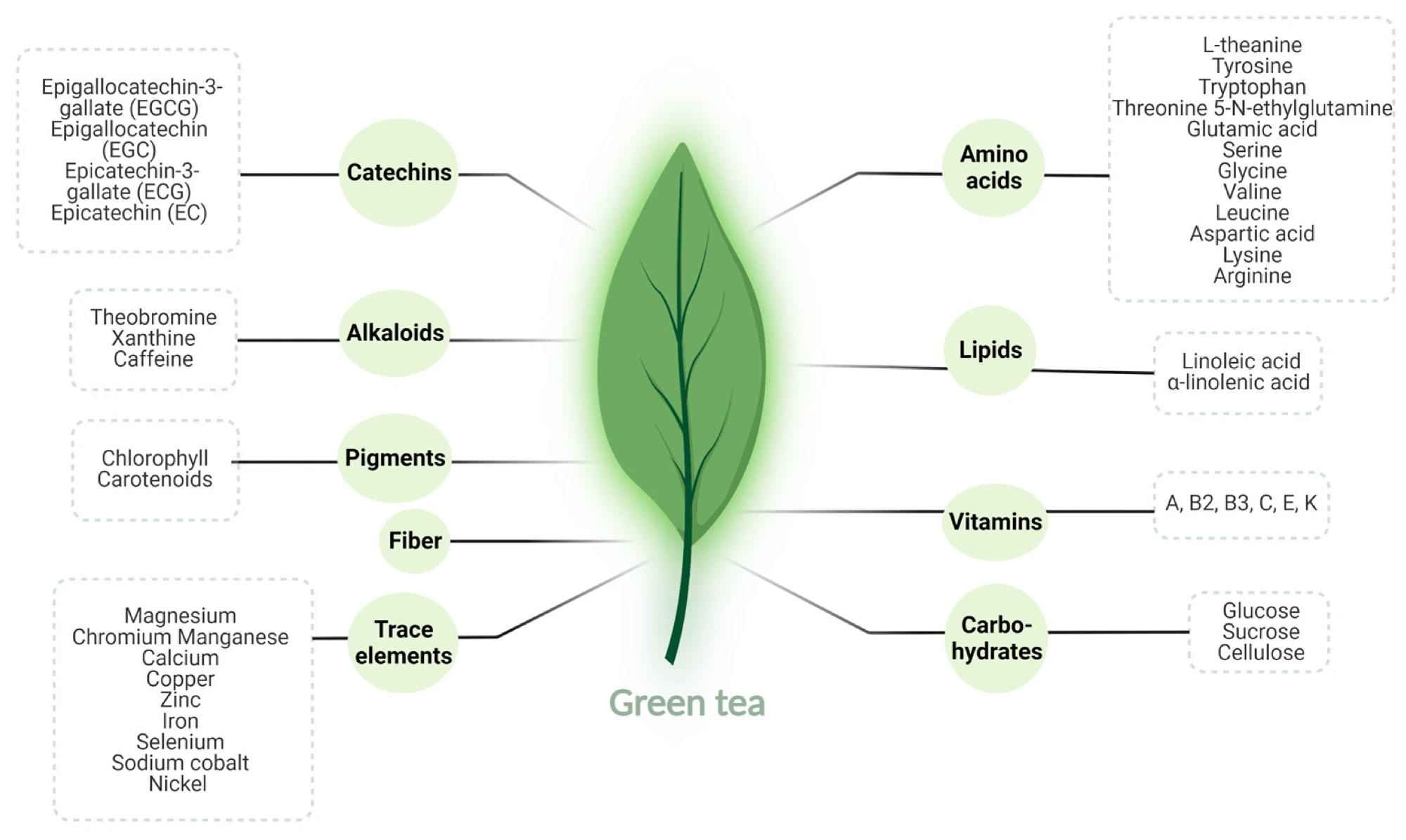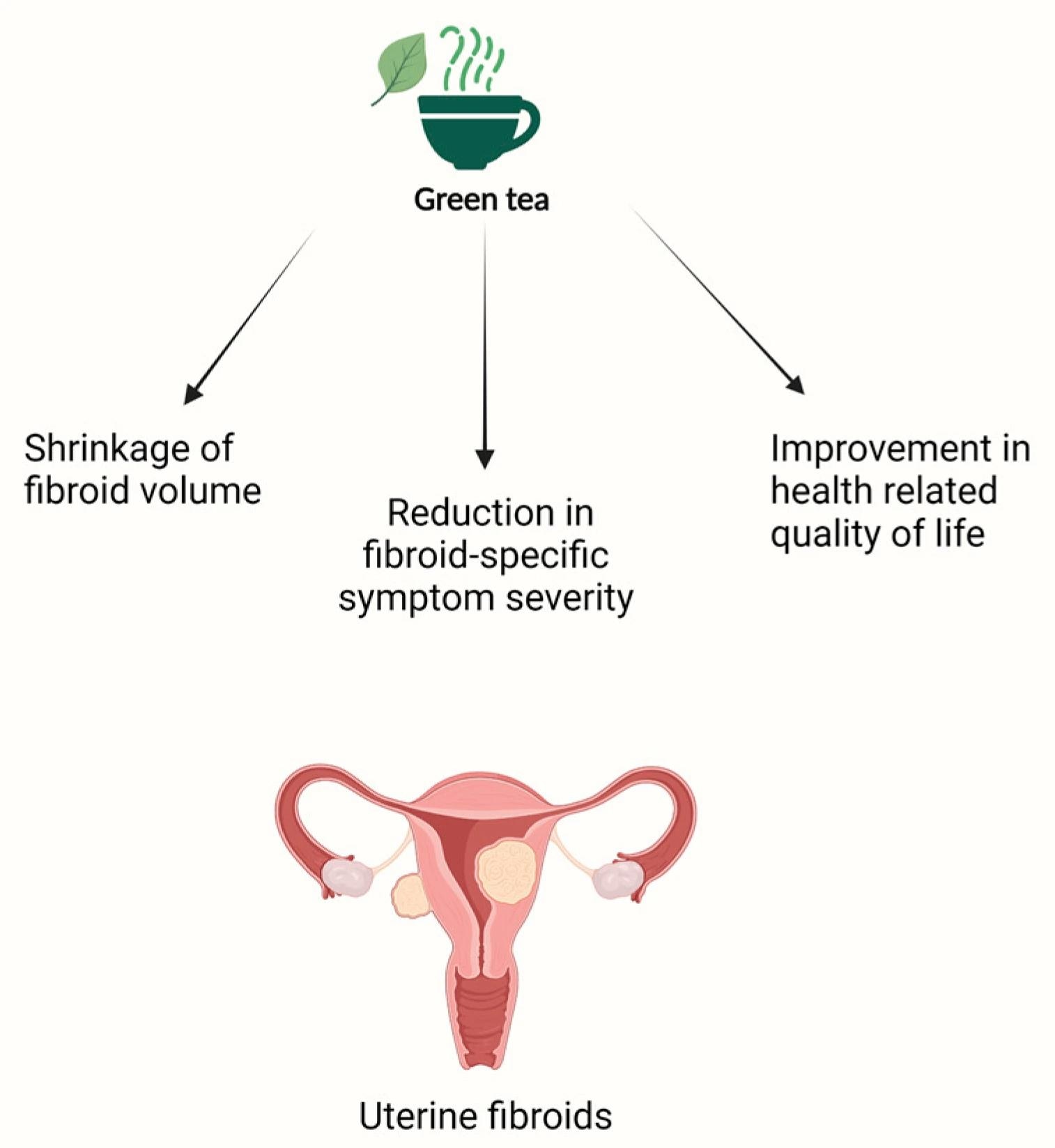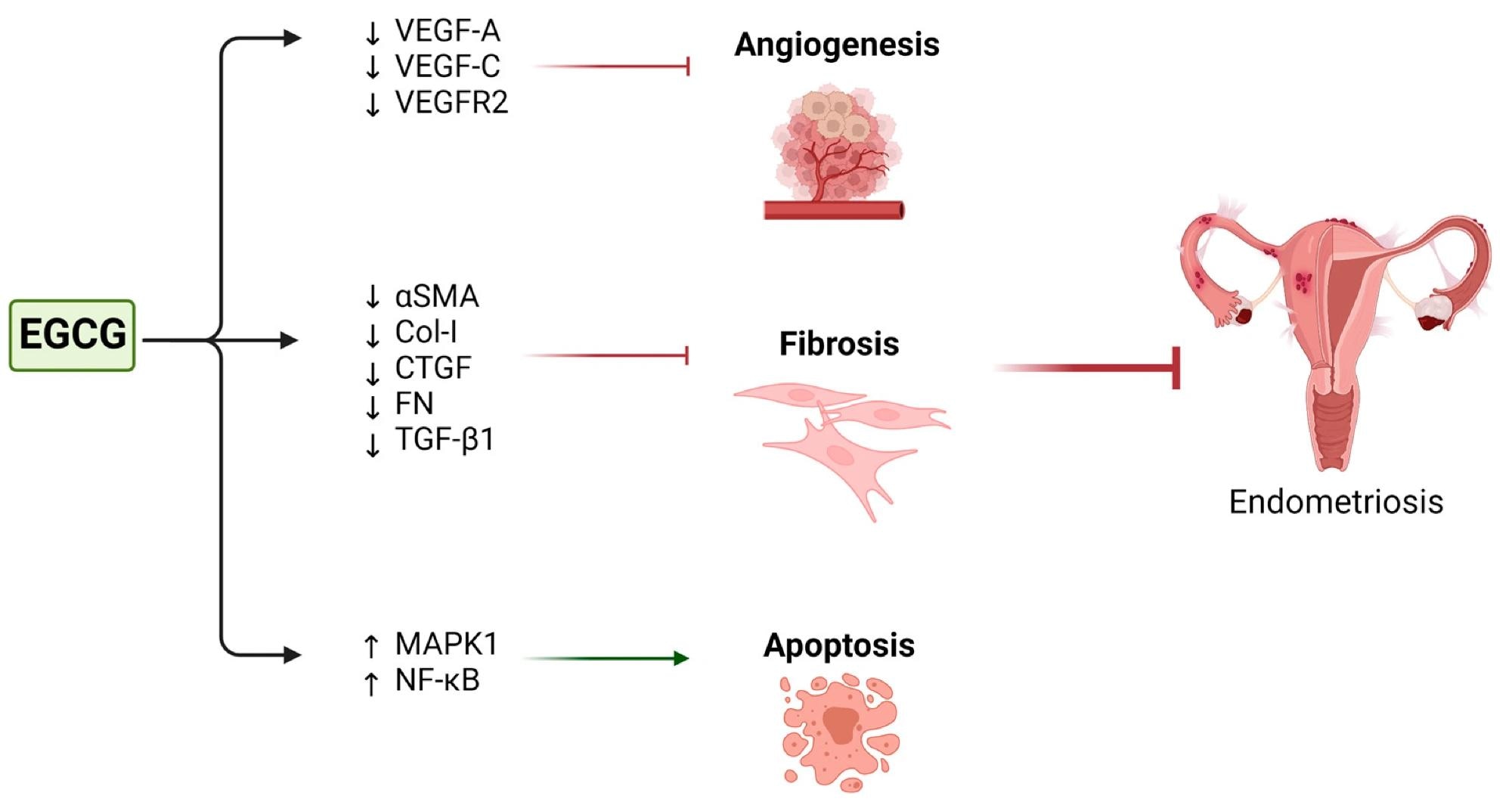Millions of women worldwide experience benign reproductive disorders such as fibroids, endometriosis, polycystic ovarian syndrome (PCOS), adenomyosis, and dysmenorrhea. Over 65% of women suffer from fibroids at some stage in their lives, while PCOS has a prevalence of 20%, and endometriosis occurs in 10% to 15% of women across the world. Given the chemotherapeutic and antioxidant properties of EGCG, green tea could have clinical benefits in alleviating symptoms of benign gynecological disorders.
Properties of green tea
The nutrients present in green tea include lipids, carbohydrates, a wide variety of vitamins, amino acids, carotenoids, chlorophyll, and alkaloids such as caffeine, theobromine, and xanthine. Additionally, trace elements such as zinc, calcium, copper, iron, magnesium, chromium, and manganese are also found in green tea.
 Chemical composition of green tea.
Chemical composition of green tea.
Close to 30% of the weight of dry green tea leaves is composed of polyphenolic compounds called catechins, which include EGCG, epicatechin, and epigallocatechin. Studies have reported that catechins exhibit high levels of antioxidant activity, which is further elevated in green tea due to the absence of the fermentation process in green tea production.
The review also discussed the processes through which catechins are absorbed in the intestine and processed in the intestines and the liver and the various practices that increase the bioavailability of catechins. Additionally, the researchers also examined the mechanisms of action of EGCG, including its binding with laminin receptors and other molecules that play a significant role in the metastasis of cancers and its interactions with fibronectin, fibrinogen, histidine-rich glycoprotein, and other extracellular matrix proteins. The mechanisms through which EGCG acts as an antioxidant and a prooxidant and the antifibrotic and anti-angiogenic properties of EGCG were also discussed.
Benefits against benign gynecological disorders
The review discussed various studies that have explored the benefits of EGCG in alleviating symptoms of benign reproductive disorders in women, such as dysmenorrhea, endometriosis, PCOS, and more. Dysmenorrhea is linked to high levels of prostaglandins produced by the endometrium. Studies have shown that EGCG can reduce prostaglandin biosynthesis, providing a natural alternative to the non-steroidal anti-inflammatory drugs that are usually prescribed for dysmenorrhea.
Uterine fibroids are highly prevalent in women of reproductive age. Depending on the fibroids' size and location, the symptoms can range from painful and prolonged menses to constipation, pelvic pressure, and frequent urination. Fibroids also affect fertility and in severe cases, require hysterectomies or myomectomies. The antifibrotic and anti-angiogenic properties of EGCG could reduce such benign tumors. Studies in animal models and humans have shown that EGCG treatment successfully reduced the fibroid's size and improved overall quality of life by alleviating symptoms.
 Schematic presentation of the effects of green tea on uterine fibroids.
Schematic presentation of the effects of green tea on uterine fibroids.
Furthermore, EGCG has also shown promise in treating endometriosis through its apoptotic properties. Endometriosis results in the implantation of benign lesions in the region outside the uterine cavity, causing pain during intercourse, menses, and even defecation. Experiments with murine models showed that EGCG treatment reduced the size of endometrial lesions and prevented the formation of new lesions.
 Schematic presentation of the possible roles and mechanisms of green tea in endometriosis. ↓ = downregulation; ↑ = upregulation.
Schematic presentation of the possible roles and mechanisms of green tea in endometriosis. ↓ = downregulation; ↑ = upregulation.
Green tea was also found to improve in vitro fertilization outcomes with the antioxidant properties of EGCG, reducing the reactive oxygen species and improving female gamete quality. The review also discussed the potential benefits of green tea and EGCG in treating adenomyosis and PCOS and improving the overall health of women undergoing menopause. Additionally, the side effects and safety profile of EGCG and the safe consumption levels of green tea were also covered in the review.
Conclusions
Overall, the review suggested that given the anti-angiogenic, antioxidant, and antifibrotic properties exhibited by EGCG, and its interaction with a wide range of signaling pathways, EGCG could have clinical benefits against benign gynecological disorders such as fibrosis, PCOS, endometriosis, dysmenorrhea, and adenomyosis. However, the authors believe that since much of the evidence comes from in vitro and in vivo experiments, clinical studies examining the benefits of EGCG are essential.
Journal reference:
- Hazimeh, D., Massoud, G., Parish, M., Singh, B., Segars, J., & Islam, M. S. (2023). Green tea and benign gynecologic disorders: A new trick for an old beverage? Nutrients, 15, Article 6. https://doi.org/10.3390/nu15061439, https://www.mdpi.com/2072-6643/15/6/1439